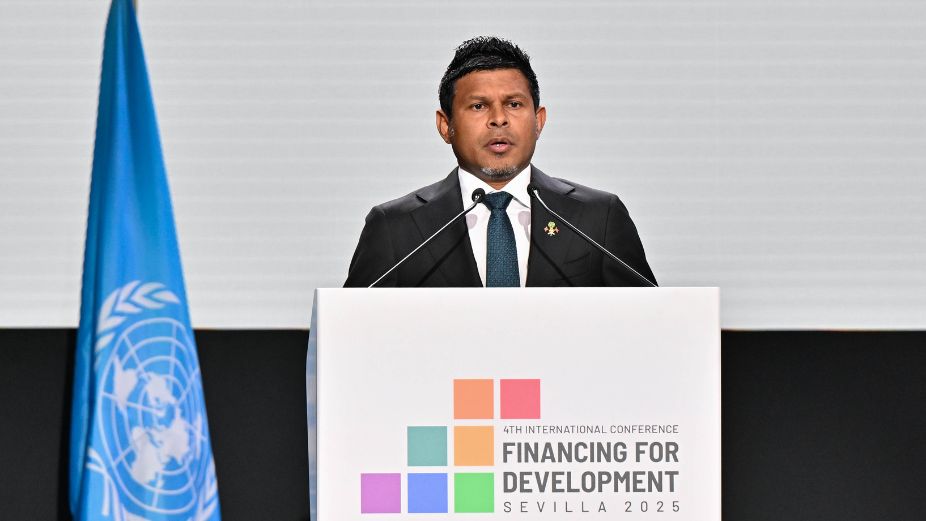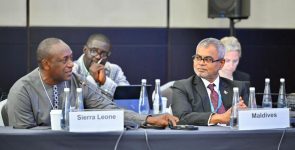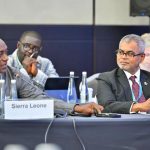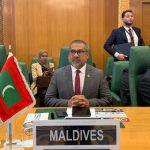
Vice President Hussain Mohamed Latheef has called for urgent reforms to the international financial system, highlighting the structural barriers faced by Small Island Developing States (SIDS) like the Maldives. Delivering the Maldives’ plenary statement at the Fourth International Conference on Financing for Development (FfD4) in Seville, Spain, the Vice President stressed the importance of equitable access to finance, meaningful debt relief, and building national capacity for sustainable development.
In his remarks, the Vice President noted that geopolitical tensions and global conflicts continue to affect supply chains and heighten economic uncertainty, making the development path more complex for countries like the Maldives. Despite these challenges, he outlined a range of domestic initiatives undertaken to strengthen economic resilience and growth.
Among the measures highlighted were the launch of international bunkering services and the creation of the Development Bank of Maldives to support long-term social and economic development. He also noted ongoing work to develop a modern financial ecosystem through the Maldives International Financial Services Authority and the Maldives International Finance Centre, which has reportedly secured investment commitments of up to USD 8 billion.
The Vice President drew attention to efforts to diversify trade, including the expansion of fisheries exports, and to infrastructure projects such as the new terminal at Velana International Airport, set to open in July. The upgraded terminal is expected to triple passenger capacity to 7 million per year.
Emphasising inclusive growth, the Vice President said the government is prioritising micro, small, and medium-sized enterprises (MSMEs), particularly those led by women and youth. He referenced the country’s creative economy strategy and investment in climate-positive enterprise development.
Turning to global financial issues, the Vice President expressed concern about the lack of access to concessional finance for SIDS and the continued reliance on commercial borrowing. He advocated for a “debt relief for resilience-building” approach, encouraging creditors to tie relief to investment in resilience and long-term development.
He also urged fellow delegates to translate the Seville Commitment into tangible action, arguing that development efforts must be supported by global cooperation and reform. “Achieving this vision requires courage, cooperation, and reform of a system that too often leaves the most vulnerable behind,” he said.
The FfD4 conference, which runs from 30 June to 3 July in Seville, brings together governments, international financial institutions, civil society, and private sector actors to discuss the future of global financial architecture and sustainable development financing.









